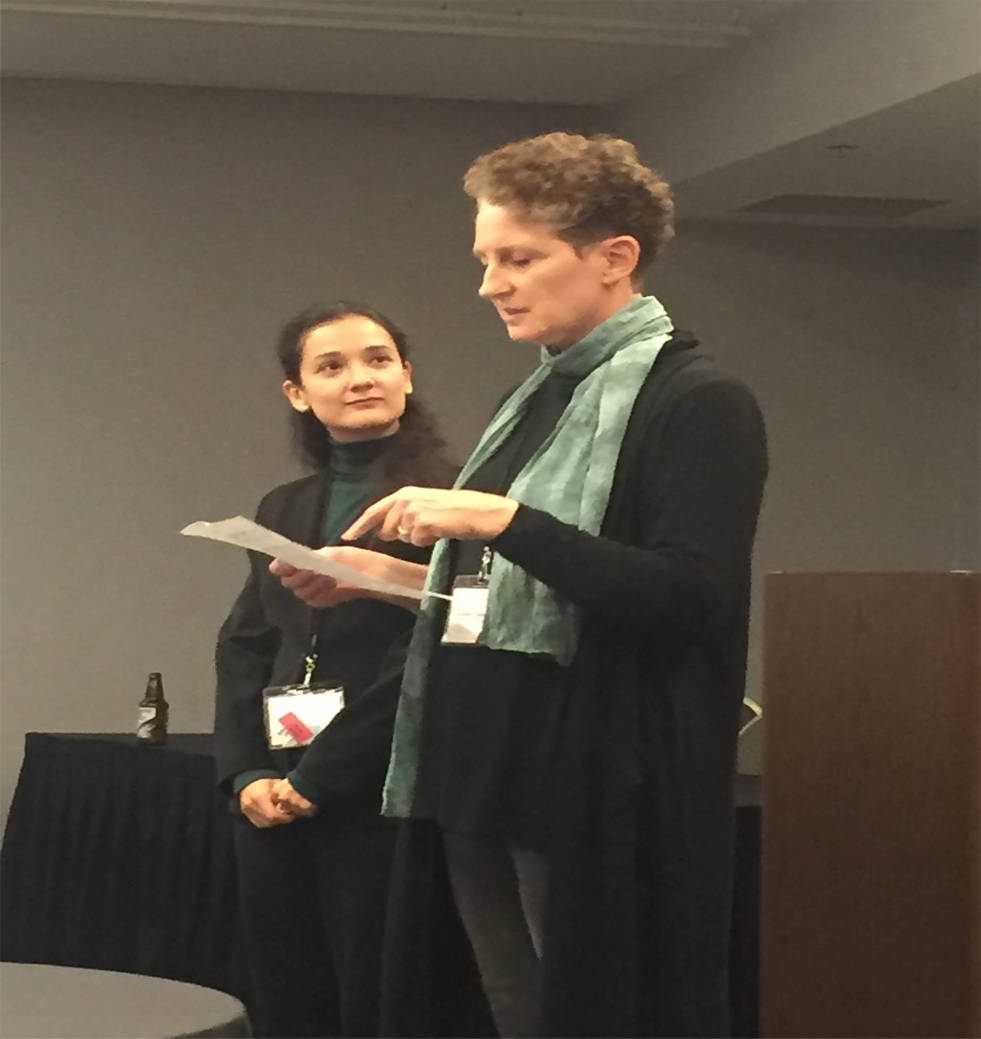Assistant Professor of History Dr. Carl Suddler recently appeared on the Princeton University Podcast Politics and Polls. Julian Zelizer interviewed Suddler in a conversation that centered on the racialized nature of the criminal justice system. Suddler’s first book, Presumed Criminal: Black Youth and the Justice System in Postwar New York, was published by NYU Press earlier this year. Listen to the full episode here: “Politics & Polls #156: Black Youth and the Criminal Justice System Ft. Carl Suddler.”
Month / October 2019
Claudia Kreklau (PhD, ’18) Wins Article Prize from Goethe Society of North America

Congratulations to Claudia Kreklau (PhD ’18), who won the Richard Sussman Prize in the History of Science 2019 for her article “Travel, Technology, Theory: The Aesthetics of Ichthyology during the Second Scientific Revolution” (German Studies Review, 2018). The prize is awarded by the Goethe Society of North America and was announced at the German Studies Association 43rd Annual Meeting in Portland, Oregon.
Carol Anderson on Impeachment, Democracy, and White Supremacy in the ‘Washington Post’
Dr. Carol Anderson recently authored an op-ed for The Washington Post, titled “Impeachment is the latest chapter in the battle between democracy and white supremacy.” Anderson, an expert in race, justice, and equality in the U.S., surveys key episodes from U.S. history that contextualize Donald Trump’s reaction to the recently-initiated impeachment investigation. She concludes that “When it comes to a nation held hostage to racism, we have been here before.” Professor Anderson is Associated Faculty in the History Department, Charles Howard Candler Professor of African American Studies, and Chair of African American Studies. She is also the author, most recently, of One Person, No Vote: How Voter Suppression is Destroying Our Democracy (Bloomsbury, 2018). Read an excerpt of the article below along with the full piece here.
“Since the nation’s founding, the refusal to believe in democracy and follow through on the nation’s ideals — equality and freedom — has been the nation’s consistent enemy. Time and time again, white supremacists have sacrificed these principles to advance their own interests and that of their white supporters. Trump has followed suit, adding the disregard for the rule of law to the list. When challenged, he has also invoked the strategy white supremacist leaders have also mastered: threats of violence and extortion.” – Carol Anderson
Debjani Bhattacharyya (PhD, ’14) Wins Honorable Mention for Best Book from the Urban History Association
Congratulations to Dr. Debjani Bhattacharyya, Assistant Professor of History at Drexel University and a 2014 PhD, whose first book recently won an award from the Urban History Association. Bhattacharyya published Empire and Ecology in the Bengal Delta: The Making of Calcutta with Cambridge in May of 2018. The Urban History Association awarded the book honorable mention for 2017-18 Best Book in Non-North American History. Bhattacharyya is currently a Visiting Research Scholar at Princeton University in the Department of History and the Shelby Cullom Davis Center for Historical Studies.
Deborah Dinner Quoted in ‘Washington Post’ Article on Gender Discrimination in the Workplace
Dr. Deborah Dinner, Associate Professor at Emory Law and Associated Faculty in the History Department, recently contributed to an article in The Washington Post. Dinner, a specialist in the legal history of gender and work, discusses gender discrimination in the workplace in advance of a Supreme Court case that will revisit LGBTQ rights at work. Marisa Iati wrote the piece, titled “Supreme Court, set to rule on LGBTQ rights at work, addressed gender discrimination 30 years ago.” Read an excerpt below along with the full piece.
“The stereotype is that a male should dress in a certain way or perform his gender identity in a particular way or should have romantic relationships with women and not men,” Dinner said. “And so by discriminating on the basis of somebody’s gender identity or on the basis of their sexual orientation, what an employer in fact is doing is discriminating on the basis of a gender stereotype.” – Deborah Dinner
